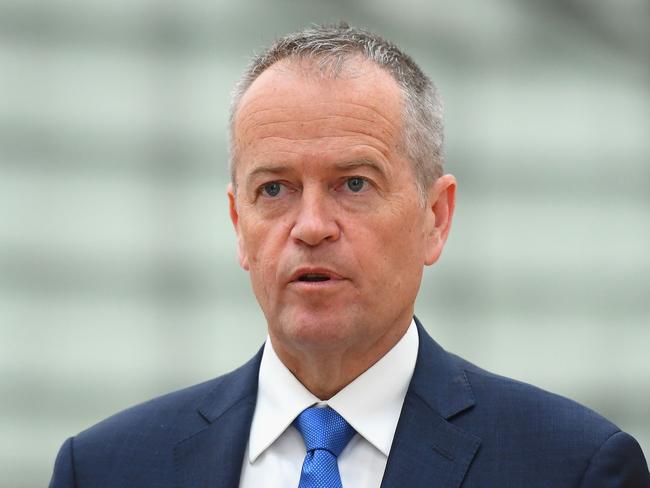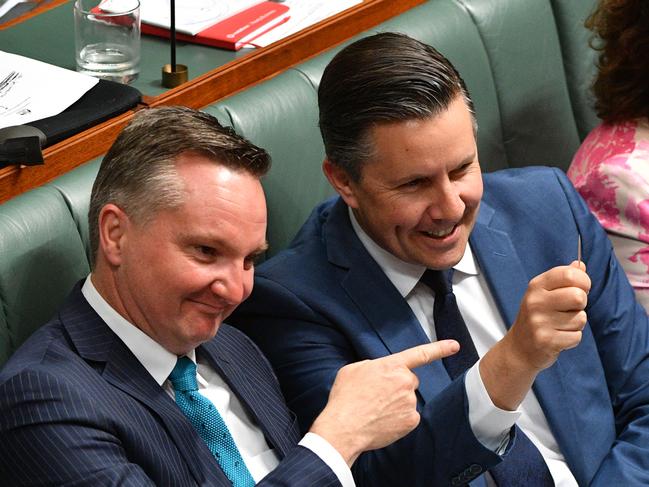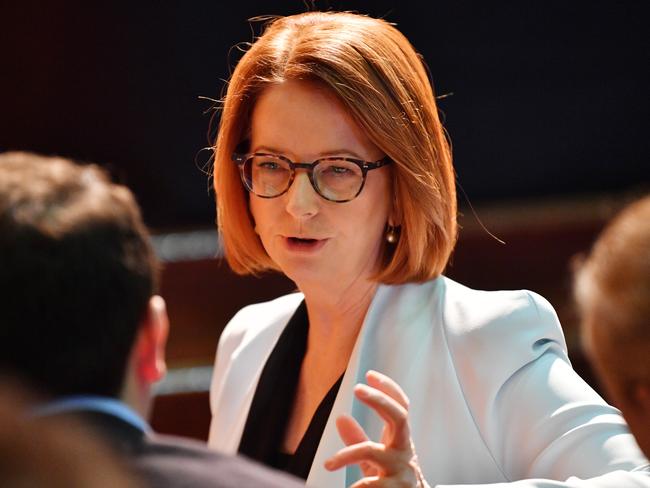Labor flags carbon price comeback if it wins the next federal election
Bill Shorten has unveiled a multi-billion dollar plan to fix Australia’s energy crisis, as the party mulls over resurrecting a price on carbon.
National
Don't miss out on the headlines from National. Followed categories will be added to My News.
Bill Shorten has unveiled a $15 billion plan to fix Australia’s energy crisis as the party mulls resurrecting a price on carbon.
The huge investment includes money for a second connection to Tasmania, so it can act as the “battery of the nation” to meet peak demands.
Australian households will also get huge discounts on energy-saving batteries to support their solar panels.
Mr Shorten unveiled the plan Labor will take to the next election in a speech in Syndey today, which included committing funds for a new clean energy generation.
“We will turbo-charge the Clean Energy Finance Corporation, doubling its original capital with an additional $10 billion over five years,” Mr Shorten said.

He also promised $5 billion to modernise the transmission network, including the second Basslink cable.
“Communities are going to be generating much more of their own power in their own neighbourhood. We need a national grid and network that supports this,” Mr Shorten said.
Labor will subsidise 100,000 household batteries, and aim to help one million more households have battery systems by 2025.
“The beauty of the batteries is that the energy is going to be there when you need it not just when the sun is shining,” Mr Shorten told the Nine Network this morning.
Prime Minister Scott Morrison savaged the plan today, saying Labor’s 45 per cent emissions reduction target would be five times worse than the carbon tax instituted under the previous Labor government.
“What we have here is a repeat of the same failed approach to policy that we saw five or six years ago. They have not learnt from their mistakes,” Mr Morrison said.
“And if you couldn’t trust them to put pink batts in your own roof without its setting on fire, I wouldn’t trust Bill Shorten to put a big battery in your house, either.”
Home Affairs Minister Peter Dutton also likened the idea to Kevin Rudd’s botched ‘pink batts’ home insulation scheme and Julia Gillard’s failed “Cash for Clunkers” program.
“This pink batteries debacle is like the Cash for Clunkers,” Mr Dutton told 2GB radio.
“These people just don’t learn the lesson.”
Labor also intends to put Malcolm Turnbull’s scrapped National Energy Guarantee on the table for bipartisan support.

The Smart Energy Council estimates the new household battery systems could help homes save more than 60 per cent on their power bills.
They would also reduce peak demand in the electricity grid and improve the grid’s reliability.
But Energy Minister Angus Taylor is not convinced.
“The real problem with this is, even if they install those batteries, it doesn’t touch the sides. It’s not even close to enough,” Mr Taylor told 2GB radio. He says Labor’s policy - which also includes a 45 emissions reduction target and 50 per cent renewable energy target by 2030 - is too much too soon. Electrical Trades Union national secretary Allen Hicks welcomed the announcement, but said more needed to be done to fix damage caused by privatisation and inept market regulation.
“The ETU will continue to campaign to see our electrical networks returned to full public ownership and for a complete overhaul of the regulators who have failed to hold private energy companies to account,” he said.
LABOR IN TALKS ON CARBON PRICE
Just hours before Mr Shorten unveiled Labor’s energy plan, Shadow Energy Minister Mark Butler flagged the party was considering introducing an industry-specific Emissions Intensity Scheme.
It comes a week after Woodside Petroleum chief executive Peter Coleman joined BHP and Rio Tinto in calling for a price on carbon to help the country meet its emissions reduction targets.
Speaking to ABC radio this morning, Mr Butler said he was in discussions with stakeholders in the manufacturing and natural gas sectors about an EIS.
MORE: Details of Labor’s energy plan

“What we’ll be announcing over coming weeks — today’s announcement is particularly about electricity policy — but over coming weeks, we’ll be announcing the rest of our climate change policies because we recognise that Australia is in a very awkward, difficult position — we’re pretty much the only advanced economy where carbon pollution is rising,” he said.
“We need policies in place across the economy, in transport, in LNG as Woodside has said, in manufacturing and other sectors of the economy as well.
“We will have more to say about that but I’m in deep discussions with the manufacturing sector, the LNG sector, companies like Woodside, about the sort of Emissions Intensity Scheme that will operate for those industries that will do the job at lowest cost of getting pollution down.”
Asked whether Labor was considering an industry-specific Emissions Intensity Scheme, Mr Butler said: “That’s right.”
He added the party would have more to say about manufacturing, gas, transport and other sectors over coming weeks.
Carbon pricing laws were introduced by the Gillard government but were abolished by Tony Abbott in 2014 after the Coalition came to power.
Woodside had been an outspoken opponent of the policy at the time but last week reversed its position, with Mr Coleman saying: “We need a price on carbon.”
“We need to ensure the most effective energy gets into the system,” he said.
“We don’t want to have perversive outcomes where lowest cost energy suppliers are competing against renewables, and we end up in a situation where we’ve invested a lot in renewables but in fact see no benefit from a carbon point of view.”
Mr Coleman added that if didn’t matter whether individuals believed climate change science or not.
“By the time the science is proven, it will be too late to act. So it’s prudent to act today,” he said.
An EIS would set a baseline for the level of emissions that can be freely emitted. Producers that emit less than the limit will earn credits, while companies that produce emissions above the limit will have to buy credits.
Mr Shorten will commit to giving rebates of $2000 to households that install solar-powered battery systems today as he unveils the party’s energy plan in Sydney.
The rebate will be on the table from 2020 for 100,000 homes with incomes off less than $180,000.
The Opposition Leader will also flag that Labor will keep Malcolm Turnbull’s National Energy Guarantee, but with a higher emissions reduction target, although he will not rule out scrapping the plan in favour of directly funding renewable energy projects instead.


